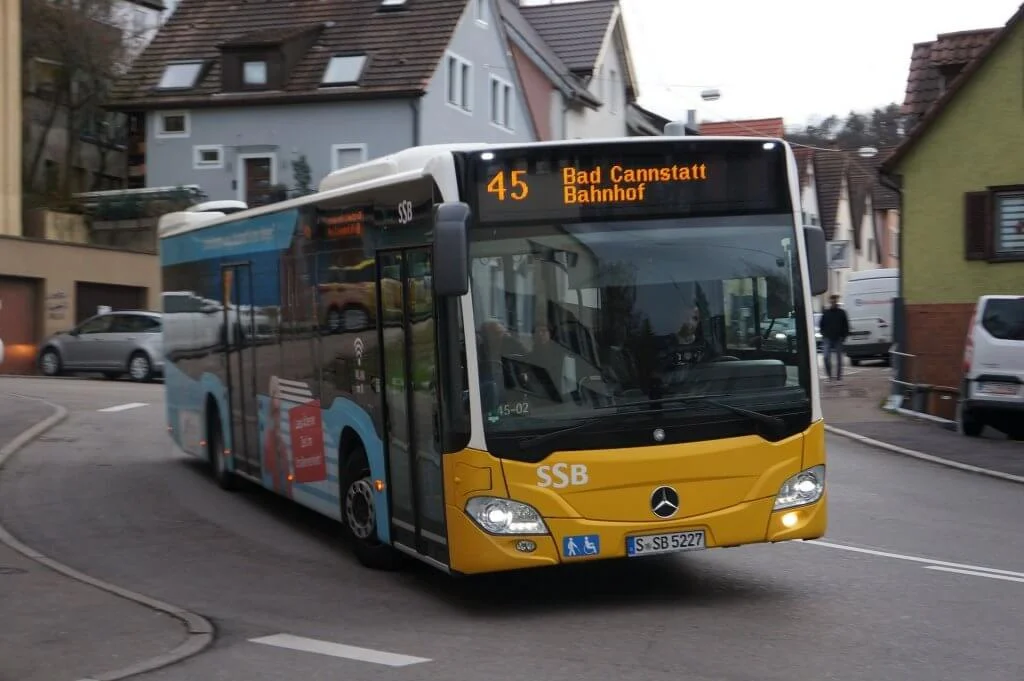In general, travelling in Germany can be expensive compared to other forms of transportation such as buses or car-sharing services, rentals.

If you’re looking for cheaper alternatives to train travel in Germany, here are a few options to consider:
- Buses: Bus travel is often cheaper than train travel in Germany, and there are many companies that offer long-distance bus services throughout the country. Popular bus companies in Germany include FlixBus, MeinFernbus, and Eurolines. To inform more about overland and regional buses please follow this link: Regional & Overland Buses in Germany
- Car-sharing: Car-sharing services like BlaBlaCar allow you to share a ride with someone who is driving to the same destination as you. This can be a cost-effective way to travel, especially if you’re traveling in a group or don’t want to deal with the hassle of public transportation. To inform more about car-sharing in germany: Car Sharing Germany
- Hitchhiking: While hitchhiking is not as popular in Germany as it used to be, it is still possible to hitchhike safely and legally in certain areas. If you’re comfortable with the idea of hitchhiking, it can be a way to travel for free or at a very low cost.
- Cycling: Germany is known for its excellent cycling infrastructure, and cycling can be a fun and eco-friendly way to explore the country. There are many bike rental companies and bike-sharing programs in cities throughout Germany. To inform more about cycling in germany:
Ultimately, the best mode of transportation for you will depend on your budget, travel preferences, and destination.
Here are some pros and cons of travelling (car sharing, long-distance bus travel, and flying) within Germany:
Car Sharing:
Pros:
- Cost-effective for short trips or one-way travel
- Flexibility to pick up and drop off the car at different locations
- No need to worry about parking or maintenance
- Environmentally friendly option
Cons:
- Limited to urban areas and may not be available in smaller towns
- Availability of cars can be limited during peak travel times
- Can be more expensive than other modes of transportation for longer trips
- May require additional insurance or fees
Long-Distance Bus Travel:
Pros:
- Cost-effective for longer trips
- Direct routes to major cities and smaller towns
- Comfortable and spacious seats
- On-board amenities such as Wi-Fi and restrooms
- Environmentally friendly option
Cons:
- Longer travel times than flying
- Limited luggage space
- Limited availability of routes and schedules compared to car sharing or flying
- Can be less comfortable than other modes of transportation, especially for taller individuals
Flying:
Pros:
- Fastest mode of transportation for longer distances
- Direct flights to major cities and smaller towns
- Can be cost-effective for certain routes and travel times
- On-board amenities such as food and entertainment
- Availability of frequent flyer programs and other loyalty rewards
Cons:
- Additional costs such as baggage fees, transportation to and from the airport, and parking
- Limited flexibility in terms of pick-up and drop-off locations
- Increased security measures can lead to longer wait times
- Environmentally unfriendly option
In summary, car sharing can be a convenient and cost-effective option for short trips or one-way travel, while long-distance bus travel can be a comfortable and cost-effective option for longer distances. Flying is the fastest mode of transportation but can be more expensive and less flexible than other options. Ultimately, the choice of mode of transportation will depend on individual preferences and circumstances such as travel time, distance, and budget.
Traveling by bus in germany – What you have to consider
Bus travel in Germany is generally less expensive than train travel, and there are many bus companies that offer long-distance services throughout the country. One of the most popular bus companies in Germany is FlixBus, which operates a large network of routes connecting major cities and smaller towns.
The cost of a bus ticket in Germany can vary depending on the distance traveled and how far in advance you book your ticket. As a general rule, booking your ticket in advance will usually result in lower fares than purchasing your ticket on the day of travel. In my knowledge cutoff in 2021, a one-way ticket on FlixBus from Berlin to Frankfurt, a distance of approximately 550 kilometers, could cost between 20-30 euros if booked in advance.
In addition to FlixBus, there are several other bus companies that operate in Germany, including MeinFernbus, Eurolines, and Postbus. These companies offer similar services and fares to FlixBus, so it’s worth comparing prices and schedules to find the best option for your travel needs.
It’s important to note that bus travel may not be as comfortable or convenient as train travel, especially for longer journeys. Buses may be more crowded and have less legroom than trains, and may make more frequent stops along the way. However, if you’re looking for an affordable way to travel within Germany, buses can be a good option to consider.

What are the differences between the city and overland?
There are differences between city buses and overland buses in Germany in terms of their routes, schedules, and fares.
City buses operate within urban areas, such as within a city or town, and typically provide frequent and convenient service throughout the day. City buses often have shorter routes and may stop more frequently than overland buses, and they may be operated by different companies than those that operate long-distance bus services.
Overland buses, on the other hand, operate between cities or towns, and provide longer-distance travel. These buses may make fewer stops than city buses and often operate on a fixed schedule. Overland bus companies like FlixBus and MeinFernbus offer routes between major cities in Germany and also connect smaller towns and cities.
The cost of a bus ticket in Germany varies depending on the type of bus and the distance traveled. As I mentioned earlier, long-distance buses like FlixBus and MeinFernbus typically offer lower fares than trains, with one-way tickets costing anywhere from 10-30 euros for shorter distances and up to 50 euros or more for longer journeys.
City buses, on the other hand, may have different fares depending on the city and region where they operate. In some cities, you may be able to purchase single tickets or day tickets that allow for unlimited travel within a certain area or time period, while in other cities, you may need to purchase a ticket each time you board the bus. The cost of a city bus ticket can range from around 1-3 euros for a single journey, depending on the city and the type of ticket purchased.
It’s worth noting that there may be differences in ticket prices and fares depending on the bus company and region you’re traveling in. It’s a good idea to check the website of the bus company you’re interested in using to get up-to-date information on fares and schedules.
Here are some more articels with detailed informations about the different ways of travelling and what you should care for:
All you need to know about travelling with Long-Distance Buses
All you need to know about flying in(side) Germany
All you need to know about car-sharing and driving in Germany
For further informations how to work & study in germany just follow the links below or follow us on social media& newsletter and get all important informations about life in germany.
How i can apply for apprenticeships in germany?
Have a look here:
Hot and New: Application Generators
Jobs in Germany: How to apply in 5 Steps
Also have a look at other possibilties to do an eduction in Germany
Here are some more and detailed informations:
Traineeships and Trainee-Programs Germany
